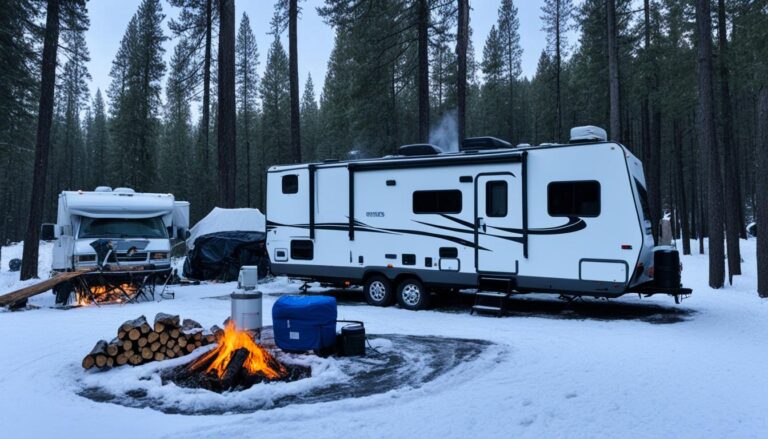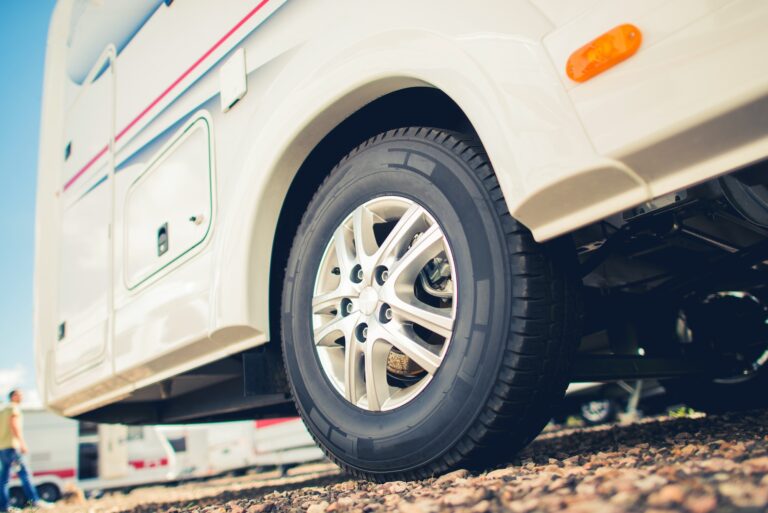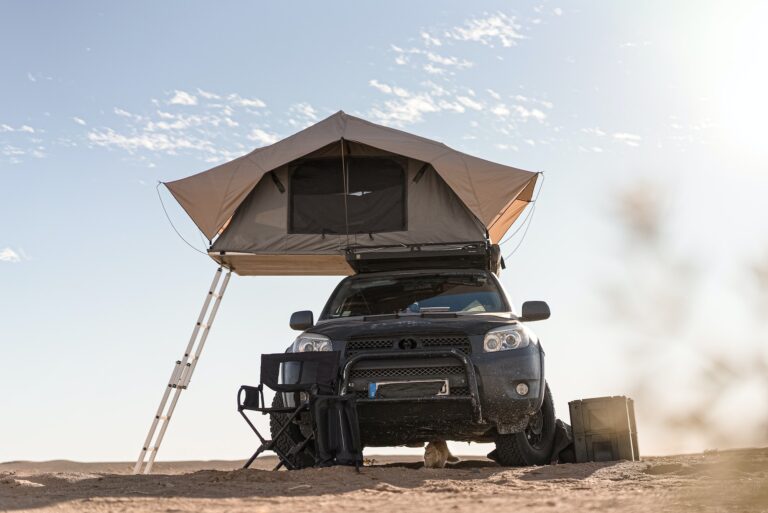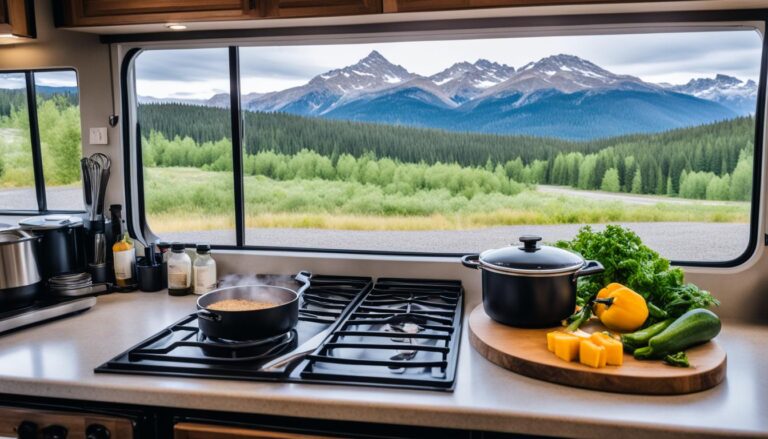Welcome to our ultimate guide on fifth wheel costs. If you’re considering buying a fifth wheel, it’s important to understand the costs involved to ensure you can afford this exciting adventure. In this section, we’ll cover the basics of fifth wheel costs and provide tips and tricks for finding affordable prices.
First, let’s talk about the average cost of a fifth wheel. The price can vary greatly depending on several factors, such as the size, brand, and amenities. On average, a new fifth wheel can range from $30,000 to $80,000 or more. Used fifth wheels can be found for less, but it’s important to consider the potential costs of repairs and maintenance.
Calculating a budget for a fifth wheel can be daunting, but it’s crucial to determine what you can afford before making a purchase. In the next section, we’ll guide you through the process of determining your fifth wheel budget, including considerations for financing, insurance, and maintenance costs.
But don’t worry, finding an affordable fifth wheel is possible. Our guide will provide you with tips and tricks for saving money on your fifth wheel purchase. Negotiating with sellers and looking for deals and discounts can help make RVing more affordable for you and your family.
Factors Affecting Fifth Wheel Pricing
Fifth wheel prices can vary greatly depending on several factors. In this section, we will explore the various elements that can affect the pricing of a fifth wheel.
Size and Amenities
The size and amenities of a fifth wheel can influence its cost significantly. Generally, larger fifth wheels with more amenities such as multiple slide-outs, luxury features like fireplaces, and high-end appliances come with a higher price tag. If you’re looking to save money on a fifth wheel purchase, consider going for a smaller RV or sacrificing some of the luxurious amenities.
Brand
The brand of a fifth wheel can impact its cost as well. Some popular brands like Airstream, Winnebago, and Forest River command higher prices due to their reputation for quality and reliability. If you have a specific brand in mind, be prepared to spend more money.
Location of Purchase
The location of your fifth wheel purchase can also impact the cost. RV dealerships in tourist areas tend to have higher prices due to demand. On the other hand, purchasing from a private seller or in an area with a lower cost of living may result in a lower price.
New vs. Used
Buying a new fifth wheel versus a used one can significantly affect the price. New fifth wheels come with higher price tags due to the cost of manufacturing, while used fifth wheels can be more affordable. However, used fifth wheels may require more maintenance and repairs, which can offset any initial savings.
Seasonality
The time of year can also impact the cost of a fifth wheel. Prices may be higher in the summer months when many people are traveling and buying RVs. Conversely, prices may be lower in the fall and winter months when demand is lower.
Understanding the various factors that can affect the cost of a fifth wheel is crucial to making an informed purchase decision. Consider your budget and priorities when evaluating the different options available to you.
Determining Your Fifth Wheel Budget
Before setting out to purchase a fifth wheel, it’s important to determine your budget. This will help you to identify the price range of fifth wheels that you can afford, and prevent you from getting into financial difficulty down the line. Here are some tips to help you determine your fifth wheel costs:
- Figure out your financing. Consider how you will finance your fifth wheel purchase. Will you be buying outright, or taking out a loan? Calculate the monthly payments you can afford based on your income and expenditures, and use this to determine the maximum amount you can spend on a fifth wheel.
- Factor in insurance costs. You’ll need to insure your fifth wheel, so factor in those costs when determining your overall budget. Be sure to get quotes from a few different insurance providers so you can compare rates and find the best deal.
- Consider maintenance costs. Fifth wheels require regular maintenance, including things like tire replacements, oil changes, and general repairs. Estimate the cost of these services and factor them into your budget. It’s a good idea to set aside a separate emergency fund specifically for unexpected repairs and maintenance.
By taking these factors into account, you’ll be able to determine your fifth wheel budget and start your search for the perfect RV. Remember to keep your budget in mind throughout the buying process and stick to it to avoid overspending.
New vs. Used Fifth Wheels
When considering a fifth wheel purchase, one of the big decisions you’ll need to make is whether to buy a new or used model. Each option comes with its own set of advantages and disadvantages, and the choice ultimately comes down to your personal preferences and budget.
Pros and Cons of Buying New
Pros:
- You get the latest features and amenities.
- The warranty will cover any repairs or defects for a certain period of time.
- You can customize the fifth wheel to your liking.
Cons:
- New fifth wheels are more expensive.
- You’ll take a significant depreciation hit as soon as you drive off the lot.
Pros and Cons of Buying Used
Pros:
- Used fifth wheels are generally more affordable.
- You can find good deals on well-maintained models.
- The previous owner may have made upgrades or improvements.
Cons:
- You may not get the latest features or amenities.
- You’ll need to thoroughly inspect the fifth wheel and may need to make repairs.
- You may need to negotiate with the seller to get a fair price.
Ultimately, the decision to buy a new or used fifth wheel comes down to your personal preferences and budget. Consider the pros and cons of each option and weigh them against your needs and financial situation.
How to Save Money on Fifth Wheels
RVing can be an expensive venture, especially when it comes to purchasing a fifth wheel. However, there are ways to save money on your fifth wheel purchase and make it more affordable. Here are some tips and tricks to help you save money:
- Shop around: Don’t settle for the first fifth wheel you come across. Take your time to research different models and dealerships to find the best deal.
- Look for deals and discounts: Keep an eye out for sales, promotions, and clearance events. You may be able to find a great deal on a new or used fifth wheel.
- Negotiate: Don’t be afraid to negotiate with sellers. They may be willing to lower the price or include extras like upgrades or accessories to close the deal.
- Consider buying used: Used fifth wheels can be significantly cheaper than new ones. Just be sure to inspect them thoroughly and take them for a test drive before making a purchase.
- Buy at the end of the season: Dealerships are often looking to clear out inventory at the end of RV season. This can be a great time to snag a deal on a new or used fifth wheel.
Tip: Don’t forget to factor in other costs like insurance, taxes, and registration fees when calculating the total cost of your fifth wheel purchase.
By following these tips, you can save money on your fifth wheel purchase and make RVing more affordable. Remember to do your research, be patient, and negotiate to get the best deal possible.
Maintenance and Other Fifth Wheel Costs
Once you’ve purchased your fifth wheel, you’ll need to factor in ongoing expenses for maintenance, repairs, and other miscellaneous costs. It’s important to budget for these expenses to ensure you can continue to enjoy your RV without any unexpected financial surprises.
Maintenance Costs
Maintenance costs for a fifth wheel can vary depending on the age and condition of the RV. Routine maintenance tasks like oil changes, tire rotations, and fluid top-offs can cost a few hundred dollars per year. However, larger maintenance tasks like roof repairs or appliance replacements can run into the thousands of dollars.
To save money on maintenance costs, it’s important to keep up with routine maintenance tasks to prevent larger issues from arising. You may also want to consider learning how to do some basic maintenance tasks yourself to save money on labor costs.
Repairs
Like with any vehicle, repairs on a fifth wheel can be expensive. Major repairs like engine or transmission replacement can easily cost thousands of dollars. It’s important to have an emergency fund set aside for unexpected repairs.
You may also want to consider purchasing an extended warranty or service contract to cover the costs of repairs. Be sure to read the fine print and understand what is and isn’t covered before making a purchase.
Other Miscellaneous Costs
There are a variety of miscellaneous costs associated with owning a fifth wheel. These can include things like insurance, storage fees, and campground fees. It’s important to factor in these costs when determining your overall fifth wheel budget.
To save money on these costs, look for discounts and deals on insurance and campground fees. You may also want to consider storing your RV at a more affordable location, such as on your own property or at a friend or family member’s home.
Fifth Wheel Costs FAQ
As you plan your fifth wheel purchase, you likely have many questions about the costs involved. Here are some of the most frequently asked questions about fifth wheel costs:
How much does an average fifth wheel cost?
The cost of an average fifth wheel can vary widely depending on the size, amenities, and location of purchase. However, the average price range for a new fifth wheel is between $30,000 and $80,000. If you’re considering a used fifth wheel, you may be able to find one for as low as $10,000.
What factors affect fifth wheel pricing?
Several factors can affect the price of a fifth wheel, including its size, amenities, brand, and location of purchase. Newer models with more luxurious amenities will typically cost more than smaller, simpler models. Buying from a dealer in a high-cost area will also likely be more expensive than purchasing from a private seller in a lower-cost region.
How can I determine my fifth wheel budget?
When determining your fifth wheel budget, consider your available funds as well as any additional expenses like financing, insurance, and maintenance costs. You may also want to consider how frequently you plan to use your fifth wheel and how long you intend to keep it.
Should I buy a new or used fifth wheel to save money?
Buying a used fifth wheel can often be less expensive than purchasing a new model, but it’s important to carefully evaluate the condition of the RV before making a purchase. If you’re comfortable with the additional maintenance costs that come with owning an older RV, buying used can be a great way to save money.
What are some ways to save money on fifth wheel costs?
There are several ways to save money on fifth wheel costs, including negotiating with sellers, looking for deals and discounts, and considering purchasing an older model. You may also be able to save money on maintenance costs by performing certain tasks yourself or by investing in preventative maintenance measures.
What are some ongoing fifth wheel expenses to consider?
As a fifth wheel owner, you can expect to incur ongoing expenses like maintenance, repairs, and storage fees. You may also need to pay for utilities like electricity and water when staying at different campgrounds. Make sure to budget for these expenses in addition to the initial cost of purchasing your fifth wheel.






